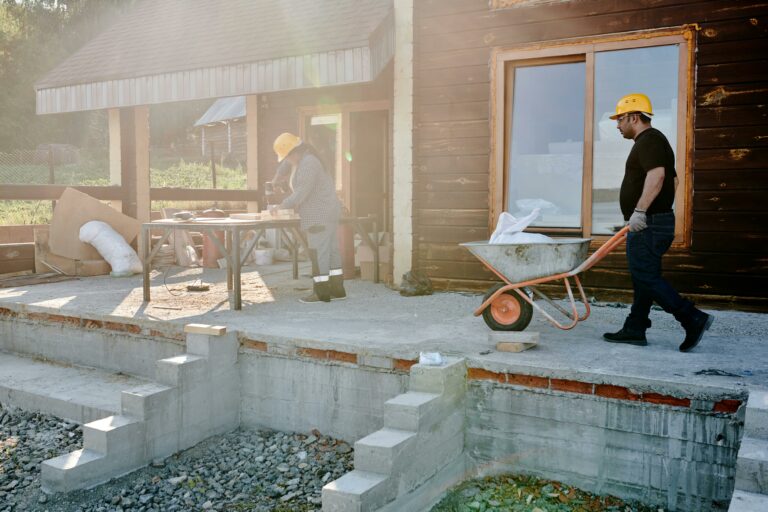AUSTRALIAN PROPERTY MARKET 2023: Its BOOMING and BUSTING State
From the bustling streets of Melbourne’s laneways to the serene landscapes of the outback, the Australian Property Market has always been a topic of intrigue, debate and aspiration.
Today we take a deep dive into its current state. Buckle up it’s going to be a good one.
Planning to enter the property market?
Know your home loan options. Talk to our expert Mortgage Broker.
BOOK A FREE 15-MIN CONSULATION NOWThe Booms, the Bust and the Debt Cycle
Over the past few decades, the Australian Property Market has seen booms, bust and everything in between. Factors like immigration, economic growth, and government policies all play pivotal roles in shaping its trajectory.
In my opinion, the biggest factor that is ignored is the debt cycle.
You see, when you have debt you get booms and you get busts. It’s like having spring, summer, winter and autumn. It’s very basic. Once the bottom of the market comes and things settle down, borrowing costs are now low.
This is because the interest rates are reduced to help the economy deal with the tough times. As the economy starts to recover, people start borrowing more. When borrowing is created, that creates more income in the economy that helps to fuel inflation.
But after a period of time of too much lending it means higher risk and the people making the deposits in the banks need to be rewarded for their increased risk.
The Reserve Bank revealing 1 in 10 borrowers on a variable rate have no spare cash maxed out paying off their loan and living costs. The issue of interest rates and cost of living is placing pressure on Australian families.
Eventually people and businesses realize there’s too much debt and are now not focused on growing but surviving and paying down or managing the debt. This causes a contraction because people who are spending less.
Eventually the people with too much debt get into trouble and have to sell their assets fast.
The biggest RISK to the Property Market
The bottom of the natural cycle which is caused by debt and the biggest risk to the Australian property market and the economy at large is that we have a risk agency bias for prospering because our governments have provided too much support.
The simple process of weak business is dying and only the strong surviving to better serve the needs of the economy has been tampered.
In GFC (Global Financial Crisis) we printed Kingdom Come. Remember the pink bats scheme or the spending we spent on all of the rebuilding of the schools? In the COVID crash we created 20% to 30% of the money supply and then dropped home loan interest rates to 2%.
When the people and the businesses that have behaved poorly throughout the down times are not punished, you get problems. Firstly, they get rewarded for their bad behavior – an example of this is the stimulus payments made in the COVID times. Sure some were warranted most would agree that a large amount of the stimulus money was poorly spent.
Secondly, it allows these bad actors to continue in the economy with what they’re doing. There’s no wonder we’ve got a productivity problem here. We’ve been conditioned into thinking that government will come in and save the day.
That is incorrect when it comes to the economy. The risk hasn’t been pushed back and in my opinion the longer it gets pushed, the more compounded the problems are going to be for whichever future generations are going to have to deal with this.
I’m not saying that this is going to happen today or in the near future. What I’m saying is that it’s a risk. No one thought home loan interest rates were going to go from 2% to 6% in 12 months but it happened. The risk you don’t see are the ones that will wipe you out.
Australian Urbanization and Infrastructure
Let’s look at where we are right now and the market data is suggesting different things in different places. Several factors are at play here. Major cities like Sydney, Melbourne and Brisbane continue to attract both domestic and international immigrants leading to increased demand.
The game plan of infrastructure spending to create more jobs is still in play. In my perspective, you could almost look at all the jobs it creates as public sector jobs and if you looked at the growth on infrastructure spending in recent years, you’ll see that more jobs are being paid for by the taxpayer and not the actual economy. Despite these views, it will act as a tailwind to the market in the short to medium term.
Reserve Bank’s Interest Rate
The Reserve Bank of Australia‘s decisions has a direct impact. Current moderate interest rates are influencing buying power. That’s right I said “moderate” – historically 6% isn’t that high guys, however because we came from such a low base it will act as a headwind. This is because borrowing powers have dropped 40 – 50% in 15 months.
In many areas there’s significant shortage of properties driving prices up. Remember this is paired with reduced demand and borrowing capacities. The coming six months is going to be a battleground to see what happens on the supply and demand side of things.
The extra supply that comes into the Australian property market through the spring rush, the fixed rate cliff and just through borrowers not being able to afford their loan repayments is going to challenge the demand in the market.
As I always say, time will tell. Personally, I think if the stock market crashes, it is a threat to the unemployment rate. I believe governments and the Reserve Bank will protect this at all cost – this means lowering interest rates.
The Global Economy and the Australian Local Insights
The global economy especially ties with Asia and international property investors play a role in the market dynamics right now. We seem to be getting only bad news from the rest of the world but so far we seem to be holding up all right; we still have unemployment being very low.
While the broader market trends are essential, local insights cannot be ignored. Suburbs in Perth and Adelaide are continuing in their strength, thanks to factors like new infrastructure projects, educational institutions, or lifestyle amenities for investors and home buyers.
These areas might offer lucrative opportunities. Clearly if not all sunshine and rainbows the Australian Property Market faces its challenges – soaring prices in major cities.Many first home buyers find it tough to enter the market. And it’s not just the first home buyers rather it’s felt all over the place with rents also skyrocketing.
Government policies including those around foreign ownership and property taxes can be double-edged swords. I know down here in Victoria there is a lot of uncertainty about the Dan Andrews’ government’s introduction of more taxes.
From conversations I’ve had with clients, they are looking to get out of property investments in Victoria. There’s a lot of trade-offs, pros and cons with this recession. It was inevitable from the time the country went into lockdown but that didn’t soften the blow when almost three decades of growth came to an end.
Global events like pandemics or economic downturns can have ripple effects on the property seeing this is the one people seemingly are oblivious to. If the economy is already weak then events like natural disasters, pandemics or wars will hit the economy harder. Economically even now after the pandemic changed the world, we’re still oblivious to this risk of unseen hits to our economy.
The future of the Australian Property Market
What’s next for the Australian Property Market? I’ve previously mentioned where I think the broad Market is at. Predicting the future is no easy task but here’s what some of the experts believe:
-Green homes and eco-friendly developments will be in demand. I actually don’t agree because they don’t actually make any economic benefit to the owner. There is a bit to go before they are actually sustainable in my opinion.
-Smart Homes are equipped with the latest technology that’ll become the norm.
-More Australians might look beyond traditional property exploring options like co-living spaces or overseas investments. This one I agree on however I think there’s going to be a lot more pain felt before things change.
The wrap up
As a country, we have some of the highest levels of regulation in the world to unwind these things that actually takes a lot of time and I think we can all agree that we need the innovation it’s just I don’t agree that it’s going to happen overnight.
The Australian Property Market with its rich history and dynamic present remains a fascinating place to study whether you’re an investor a homeowner or just a curious observer – one thing’s for sure there’s never a dull moment down under.
Stay tuned, stay informed and be cautious. Remember, the risk you don’t see are the ones that will wipe you out. Cheers!

Mortgage Broker Frankston, VIC
Will Bell has 15 years’ experience in the finance industry, the last 12 years he has owned and operated Will Bell Mortgage Broker. He specializes in residential home loans and over the years has carved out a trusted brand. This is proven by the reviews his customers have made regarding the service and the experience he has provided.
CHECK OUT THESE BLOGS:
Disclaimer: The content of this article is general in nature and is presented for informative purposes. It is not intended to constitute tax or financial advice, whether general or personal nor is it intended to imply any recommendation or opinion about a financial product. It does not take into consideration your personal situation and may not be relevant to circumstances. Before taking any action, consider your own particular circumstances and seek professional advice. This content is protected by copyright laws and various other intellectual property laws. It is not to be modified, reproduced or republished without prior written consent.








